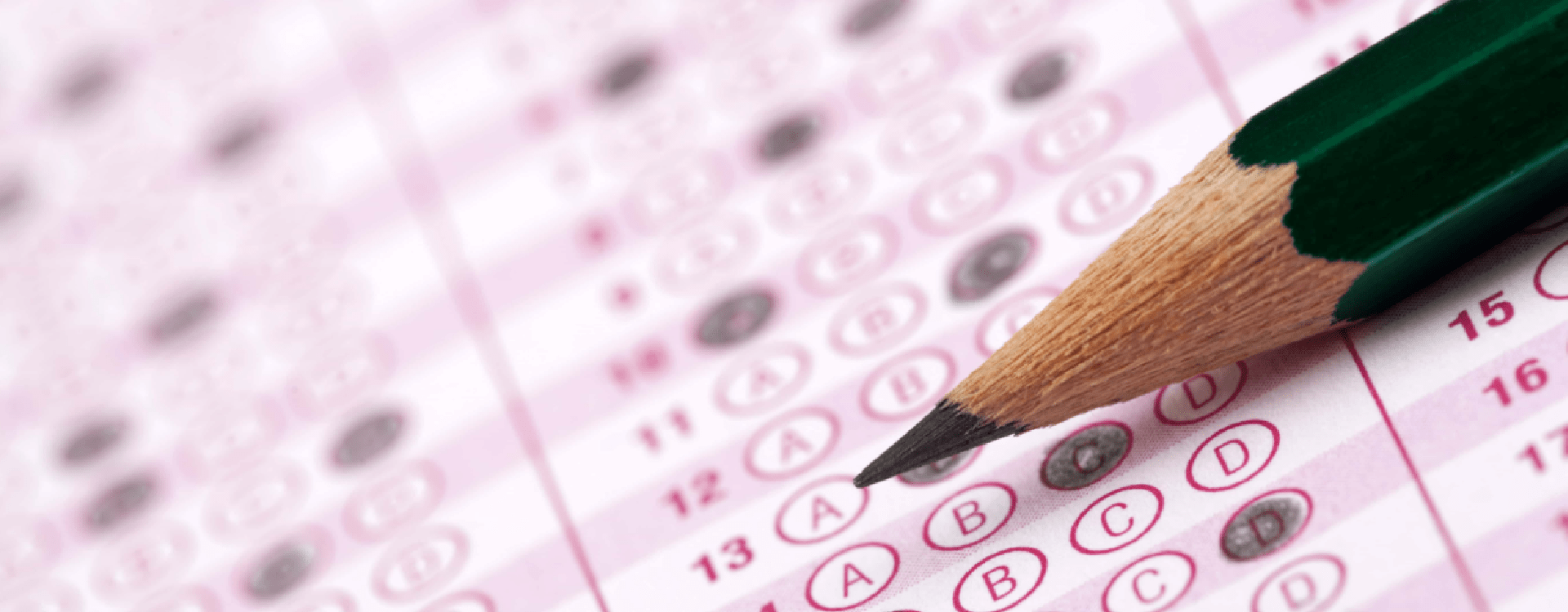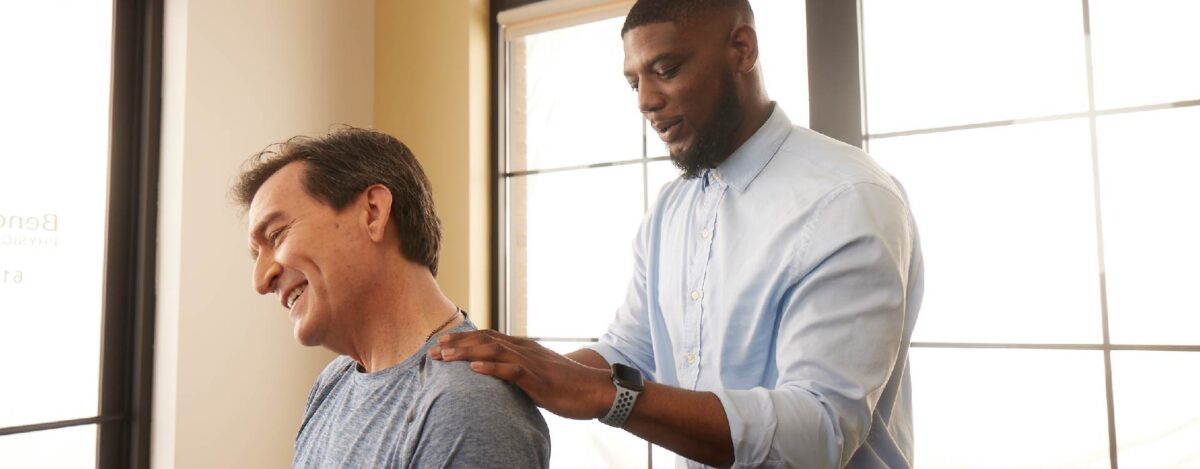Physical Therapy board examinations are right around the corner, which means it’s time to start getting ready so you don’t have to cram at the last minute! The National Physical Therapy Examination (NPTE) is an important step in your Physical Therapy career which requires all Physical Therapists (PTs) and Physical Therapist Assistants (PTAs) to take and pass to become licensed. This nationwide exam is several hours long and has hundreds of multiple-choice questions, which is why it’s important to set aside time well in advance of the exam to make sure that you start refreshing your memory on what you learned in school as well your clinicals.
As your clinical rotations wind down and you begin to look toward the future in your Physical Therapy career, we want to make sure that we’re doing all we can to help you set yourself up for success. We’ve outlined helpful study habits and recommendations as you begin to get ready for the upcoming PT boards.
1. Get On a Detailed Study Routine
One of the best things you can do when preparing for any exam, especially one as detailed and long as the physical therapy board exam, is to get on a detailed study routine. This means that you’re setting aside time each day weeks or even months in advance to make sure that you have enough time to prepare without having to cram everything in at the last minute.
Waiting until the last minute and cramming might have worked during your undergraduate studies, but it won’t help you with the PT boards and the hundreds of questions that follow. There are several ways you can structure your study routine to mix it up now and then, so you don’t get bored or complacent because of the repetitive nature.
As you’re building out your study routine, you should try to keep in mind three key details that should help you come up with a solid schedule including the length of time you plan on spending studying each day, days of the week where you can prioritize studying, and topics to cover on each day.
Looping together related topics and study materials is a great way to structure each day that you’re studying, as the PT boards often have multiple questions on each section. Creating and fine-tuning a detailed study routine takes time, so you should prioritize it and refine it over time based on how it’s working for you. Consistently studying on a set schedule will help you stay diligent during your studies and ensure that you’re well prepared.
2. Take Practice Tests
Taking a practice exam (or multiple) is a great way of getting your mind in the right place before you have to take the test. Test anxiety is a real thing and you should be on the lookout even if you’ve never had it in the past. It’s not uncommon to be a little extra nervous or feel a sense of self-doubt when it comes to your ability to answer hundreds of questions on an important exam.
Taking a practice test can help you prepare for the PT boards in a variety of ways. First, a practice test will help you evaluate your knowledge against similar questions. Second, practice examinations help you grow more confident and comfortable during the exam process so you won’t feel as anxious during the real exam. Practice examinations also help you identify areas where you could misstep during the exam, like spending too long on a question when you should skip it and come back to it at a later time.
Treat the practice exams as if they’re the real thing. Try to set aside several hours where you can take it and be distraction-free without the use of any notes.
There are plenty of resources you can use to take practice PT board exams, and we highly encourage you to take a practice exam (or several) before the exam so you can build your confidence.
3. Break Up Your Study Sessions to Stay Fresh
Breaks are a great way to break up the repetitive nature of studying, which is why you should try to incorporate steady breaks on the days that you’re studying. Take these breaks as an opportunity to get outside, refresh your mindset, and distract your brain for a few brief moments. Take these opportunities as a chance to go get a snack and drink so you can power ahead in the next session.
To stay productive during while you are hitting the books, try to study for 30 minutes to an hour and then take a 10 to 15 minute break. If you’re studying for hours on end, you’ll want to lengthen those breaks a bit but not too long. A healthy dose of study sessions and intermittent breaks is a great way to retain all of the knowledge and stay on track in future sessions.
4. Consider Using Apps and Study Guides
There are plenty of helpful resources available that can help you study for your upcoming PT board exam, you just have to search for them. You don’t need to always stick to the tried and true flashcards method. Applications and study guides (both paid and free) offer unique ways for you to spice up your study habits by breaking up your notes and physical therapy topics into quizzes, presentations, and quizzes. If you find that you’re getting bored of reading the same flashcards over and over, try spicing up your study routine by taking advantage of all the technology at your disposal.
5. Eliminate Distractions
Eliminate as many distractions as you can to ensure that you can focus during each one of your study sessions to make them as productive as they can possibly be. Spending an hour of study time is much more effective if you can spend the entire hour without getting distracted by instant messages, music, and other background noise. If you live with roommates, let them know when you’re going to be studying and politely ask them to keep the distractions to a minimum.
In addition, make sure that your study spot has everything you need and is comfortable enough for you to spend each session focused on the task at hand.
6. Don’t Be Afraid to Ask For Help
Some people find it easier to study in groups where you can bounce questions off one another and share study tricks and techniques. If you have questions, working with another clinical PT student could be a beneficial tool as you’re leading up to the exam. Don’t be afraid to ask for help when you’re confused on a topic or need additional clarification, as it can play a pivotal role in whether or not you answer the question correctly when the time comes.
7. Make Sure You’re Prepared For The Exam The Night Before
To make sure that you’re ready for the Physical Therapy board exam, take the time to get everything prepared the night before so you’re not scrambling in the morning. This means that you’ve got your pencils sharpened, bookbag packed, clothes set, identification, and other important documents ready.
In addition, make sure that you understand where you’re going for the exam with directions. If you’ve never been to the testing location before, a test drive might be a good idea to ensure you get to the right place and you’ve made all the appropriate traffic considerations. Once you’re confident you’ve got everything prepared and you’re ready to go the next morning, make sure you set aside a healthy breakfast and set your alarm clock.
Getting all the tiny details squared away the day before can help put your mind at ease when you wake up in the morning and help you focus on the task at hand, acing the PT board exam!
Good Luck!
We’d like to wish everyone good luck on their upcoming PT boards! Take advantage of some of the helpful study recommendations we’ve outlined above and we’re confident you’ll do well in your upcoming exam.
As you look to the future in your Physical Therapy career, consider applying to Upstream Rehabilitation job openings as we have hundreds of job openings across the country at our clinics. We’re always on the lookout for qualified talent and we’d love to connect.
Search and Apply for Upstream Rehabilitation Physical Therapy Job Openings!




